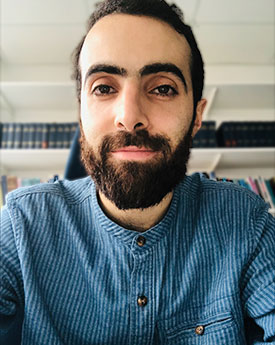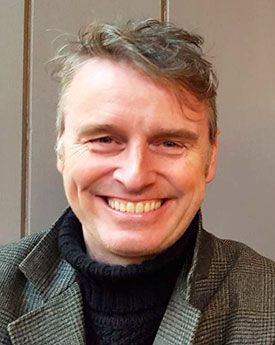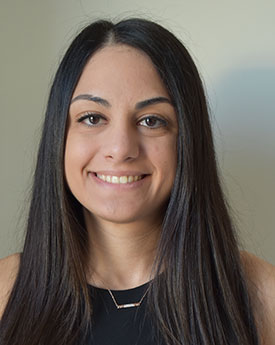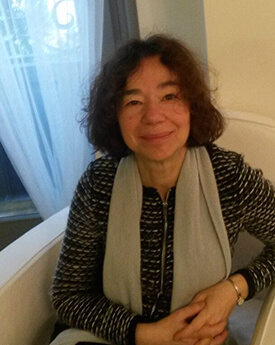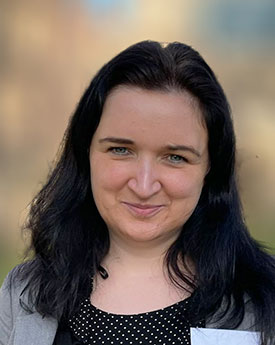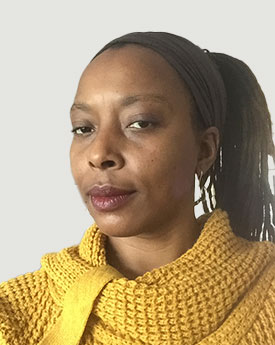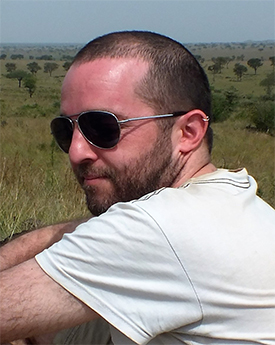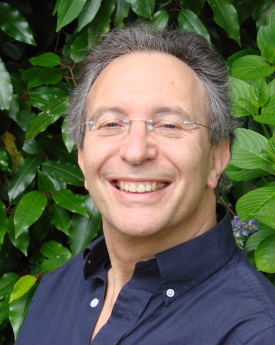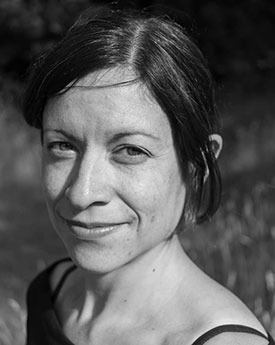Staff Research Interests
Loading People
We couldn't find anybody who matched your criteria
Amin's main areas of research interest correlate with his teaching, and consist of two inter-related legal disicplines: Law and Religion and Public Law.
Amin's research focuses on the role played by religious tribunals in Western legal systems. Over the past few years, he has led cutting-edge research on a novel type of religious tribunal in the UK, namely Islamic Shariah tribunals. After conducting fieldwork research at four of the most prominent of these tribunals, Dr Al-Astewani submitted written evidence to Parliament on the legal status of their decisions and practices, as part of the government’s first public review of Shariah councils in the UK. His evidence was subsequently cited by over twenty media outlets, including internationally.
As part of his engagement with communal organisations and bodies, Dr Al-Astewani has also advised the UK Board of Shariah Councils on the legal status of Islamic Tribunals. He continues to offer his expertise and advice to both policy-makers and Shariah councils on the legal status and role of Islamic tribunals in the modern English legal system.
Bethan's research explores consensual sibling incest in contemporary fiction, TV, and film. Arguing that its popularity speaks to more than an illicit fascination but is a pervasive, discursive phenomenon, she considers how the modern reframing of the trope reflects contemporary uncertainties surrounding normative sexualities and familial relationships.
Dr Austen-Baker's interests are in common law, particularly contracts (history, theory and doctrine), also commercial law and the law of torts and of common law remedies.
Dr. Blakely's research centres on intellectual property law, intangible cultural heritage, and digitisation, through an interdisciplinary lens. Her current research involves copyright and culture in virtual worlds. Dr. Blakely's forthcoming book, How Technology and Copyright Law Shape Culture: The Tangification of Intangible Cultural Heritage, will be published in 2024. She also serves as the Director for the Centre for Law and Society.
She completed her PhD research at University of Glasgow School of Law on Intellectual Property and Intangible Cultural Heritage in Celtic-Derived Countries, under an AHRC fully funded scholarship. She received her JD, cum laude, from University of California, Hastings College of the Law (Intellectual Property); LLM, merit, from University of London, School of Oriental and African Studies (Law, Development, and Governance); and ALB, cum laude, from Harvard University (Extension Studies: Psychology and Legal Studies). Dr. Blakely's previous professional legal training includes positions with NBC-Universal in Partnerships, Licensing & Digital as well as at the USC Institute for Innovation in Research Dev. & Technology Transfer. She was a 2018-19 Insitute for Social Futures Fellow.
My research interests are in the law of contract, the application of economic and social theories to law, and the theory and practice of regulation. My recent writings in these areas include Contractual Relations: A Contribution to the Critique of the Classical Law of Contract, Oxford, Oxford University Press, 2022; ‘Understanding Authoritarian Legality in Hong Kong: What Can Dicey and Rawls Tell Us?’, Weitseng Chen and Hualing Fu, eds, Authoritarian Legality in Asia: Formation, Development and Transition, Cambridge, Cambridge University Press, 2020, 143-68 (with R Cullen); and ‘The ‘Market’ in the Theory of Regulation’ (2018) 27 Social and Legal Studies 545-71.
Victoria Canning researches border harms and zemiology, torture, and sexualised violence. She is Professor of Criminology, Head of the Harm, Crime and Criminalisation Research Centre, Associate Director of Border Criminologies at Oxford University, Co-Chair of Statewatch, Consultant Editor at Justice, Power and Resistance, and co-editor of the Emerald Activist Criminology series. Victoria has written /edited 7 books. She is co-creator of the Right to Remain Asylum Navigation Board (with Lisa Matthews); winner of the 2018 British Society of Criminology Book Prize, and was consultant for the BAFTA award winning series Exodus: Our Journey to Europe (KEO/BBC).
Dr Chatterjee’s work spans a wide range of academic subjects. She interrogates interdisciplinary aspects of cyberlaw. She has interests in cybercrime, AI, robotics, gender/sexuality. Her most recent scholarship is on widening participation in law, business attire and fashion.
Georgina's current research is in the area of land and property law with a particular focus on cohabitation.
Her research interests include socio-legal history, gender and the law, feminism, equality and legal/political discourse.
My main research interests are in the developing field of legal design - applying design thinking to legal problems and processes. Some of my recent writing on the subject includes Legal Design: Integrating Business, Design, & Legal Thinking with Technology (Edward Elgar 2021), and Transforming Higher Education Through Human-Centred Design (Routledge 2024). I have also written on the application of design ideas to the rule of law, to legal professional cultures and to legal education. I am the founding editor-in-chief of the Legal Design Journal.
Dr Easton's research interests focus upon internet governance, domain name regulation, intellectual property, access to technology and human/computer interaction. Dr Easton also carries out research on teaching law with technology.
Sofia’s main research interests are in the fields of insolvency law and financial law. She is looking at various jurisdictions such as the UK, Cyprus, Ireland and USA. In particular, she is interested in areas like corporate and business rescue, rescue funding, financing of distressed SMEs, asset-based lending and balancing the interests of stakeholders in times of distress. Sofia is also really interested in using empirical research methodologies like quantitative and qualitative data analysis.
Georgina Firth's research interests include criminal justice, human rights, gender perspectives and immigration and asylum law. In particular, she concentrates on effective reform of (1) the legal processes surrounding the law of rape and (2) the asylum process, particularly with regard to the treatment of women and children. Her aim is to draw on her professional experience of working in the legal system to attempt to build bridges between academia and practice in these areas.
Professor Gillespie’s main research interests relate to cybercrime, particularly in respect of child sexual exploitation. Much of his work relates to child pornography, child grooming and child solicitation but also includes broader forms of cybercrime. Professor Gillespie also has research interests in legal systems and evidence, particularly covert surveillance. Professor Gillespie has been called to act as an expert advisor to the UN, Council of Europe, EU and prosecutors & the judiciary from around the world. He has also advised the Home Office, Ministry of Justice and Sentencing Council.
My research interests are in Inheritance Law. In particular I am interested in the changing nature of property and how the law can address inheritance of digital property, such as an individual's social media accounts.
International Law; Pollution Law, including plastics, chemicals and wastes; International Environmental Law; Human Rights Law; International Organisations; International Trade Law; Treaties; Just Transitions; Climate Change Law; Sustainable Development; Global Governance; Interngenerational Justice; Transitional Justice.
I have over thirty years of experience in conducting socio-legal research in national and international contexts, funded by the Nuffield Foundation, the ESRC, the DfE, the EU and Unicef. I joined Lancaster University in 2016 on a 60% contract and am based in the Law School where I hold a Chair in socio-legal studies. I helped set up the interdisciplinary Centre for Child and Family Justice Research and I co-direct the Centre with Professor Karen Broadhurst, Sociology.
Rachel's background is in Children's Rights to Education, and she has continuing interest in research collaborations in this area. She is also interested in Animal Law and Family Law.
Laura's research consists of two separate strands: Public International Law and Legal Education.
In Public International Law, Laura's research interests focus on the areas of International Diplomatic Law and International Human Rights Law. She has recently completed a monograph based upon her doctoral research on the issue of diplomatic asylum under international law, which was published in 2021. This work focuses on exploring whether a legal basis for the practice of diplomatic asylum can be identified in treaty law, customary international law or based upon humanitarian considerations.
Laura's collaborative research in the field of Legal Education focuses on advancing student support provision in Legal Education. In several recent publications, a taxonomy and a set of design principles to promote student wellbeing are introduced.
Dr Letwin is a Lecturer in Law. He convenes the Tort Law module and teaches Public Law.
His main areas of interest are Human Rights Law, Public Law, Jurisprudence, Environmental Law and Tort Law. His work has been published in a number of leading law journals, including the Human Rights Law Review, Public Law, the European Human Rights Law Review, and the ECHR Law Review. He has also published case notes in the Modern Law Review and the Cambridge Law Journal.
Dr Letwin completed his PhD at KCL. His thesis was entitled ‘A Theory of the Moral Foundations of the European Convention on Human Rights’. Before coming to Lancaster in September 2023, he was the judicial assistant to the Senior President of Tribunals in the Court of Appeal, and a Visiting Lecturer at KCL. Before his PhD he completed his LLM at UCL and his LLB at KCL, and was called to the Bar at Middle Temple.
Dr Letwin’s current research concerns four main themes: (1) the overlap between environmental protection and human rights law; (2) the principle of subsidiarity; (3) the concept of legitimacy in international law; and (4) the doctrine of proportionality. As well as working on projects related to these themes, Dr Letwin is also working on the publication of his thesis as a monograph.
In his spare time, Dr Letwin is a keen rock climber, ice climber, alpinist and runner, and is a member of the Alpine Club.
Ou's researech interests lie in the field of employment law. She is particuarly interested in the regulation of platform work and other precarious employment relations. In addtion to doctrinal analysis of the law, she embraces socio-legal methods to observe the interactions between law and the real world.
Ou's doctoral thesis examines 'Workers' Spontaneous Struggles and Resistance in the Chinese On-Demand Economy'. It draws on initial insights gained from her role as the Principal Investigator for the research project 'Empirical Research and Legal Solutions for On-Demand Work', funded by the Chinese Ministry of Education. Specifically, the thesis addresses the question of how the choices of the on-demand workers are influenced by the unique legal, social, and economic context in which they live and work.
Angus MacCulloch's research interests lie primarily in Competition Law, particularly antitrust and enforcement issues, and EU Law, particularly free movement of goods, but he retains a wider interest in Regulation, White Collar Crime, and IP law.
The majority of his recent Competition Law work focuses on the impact of the introduction of the UK's cartel offence and the wider global move towards the criminalisation of cartel activity. The research has examined the value of the adoption of criminal sanctions, the different type of criminal sanctions utilised in different jurisdictions, and the problems they have and will face in practice.
His recent EU Law research has focussed on EU law’s attempt to balance the often competition goals of enhancing free trade/competition and protecting public health.
My primary research interests are in land and property law, with a particular interest in environmental law, law and politics and legal history. Much of my research concerns the influence of pressure groups and commercial lobbies on the emergence of public policy.
Dr John McDaniel is a socio-legal researcher and lecturer (crime/ criminal justice) at Lancaster Law School. John conducts research on the right to freedom of expression, speech law, the policing of speech crimes across borders and police accountability. His research focuses on cross-border police cooperation in Europe, human rights and transnational repression, the contours of criminal law, and the use of data and AI technologies to enhance human rights monitoring. He has advised police forces and the National Crime Agency, and his work has been cited by parliamentary committees and outlets such as The Economist.
John's work has received funding from the AHRC, the British Academy/ Leverhulme and the Irish Research Council. He is a fellow of the Higher Education Academy and lectures on human rights and criminal law.
Scholarship interests
Tina's scholarship interests are in skills development; widening participation; equality, diversity and inclusion; decolonising the curriculum; and legal education.
My main research interests are at the intersection of Race, Youth, Gender and justice. My recent book (Race, Recognition, and Retribution in Contemporary Youth Justice: The Intractability/Malleability Thesis) gives a socio-historic account of Black, British and Canadian youth’s contemporary high rates of punishment. The research historicizes race and racialization in contemporary youth justice. The work locates penalty beyond the penal estate, into racialized youth’s everyday lives. Penalty is more appropriately examined as constitutive of everyday cross institutional experiences. Following a Critical Race Theory logic, the racialization of punitiveness in contemporary YJ reflects continuities of racialized peoples’ historic exclusion from the benefits of modern, universal rights.
Professor Milman has wide interests in the area of international business law. He is an expert on Corporate Law and on Insolvency Law. Within Corporate Law, he specialises in the law relating to private companies. Within Insolvency Law, his interests extend to both Corporate Insolvency and Personal Insolvency. Generally, he undertakes research within the broad area of Business Organisations, specialising in the Law of Parternship and Limited Liability Partnerships. He researches in Comparative Law in relation to the above subject areas and is currently committed to examining Sharia Law aspects.
Katie's primary research interests are as follows:
- International Human Rights Law
- Economic and Social Rights - in particular, the right to food and the right to housing
- Human Rights Cities
- Care Ethics
My main research interests are: law and bioethics on assisted dying; breaches of the sexual boundaries between doctors and patients and the impact of criminal law on bioethics and health care practice); unknowing victims of crime (BJC2023, IJPSM2023); the legal and societal responses to child abusive images (IRV2018); and the sexual grooming of children and child sexual exploitation. My most recent book analyses exploitation (conceptually, ethically and legally) in the doctor-patient relationship. My completed projects include a project on unknowing victims of child abusive images, funded by the British Academy.
Thomas' main areas of interest are:
- International Human Rights Law, focusing on the Right to Health
- Business and Human Rights, focusing on Pharmaceutical Companies
- International Law, focusing on accountability of non-state actors,
- Medical Law, focusing on access to medical treatment
- Research Methods/Methodologies, focusing on the interaction of socio-legal and sociological methodologies.
Lena's research interests lie in criminology and in Science and Technology Studies (STS) with a particular interest in how crime and technology intersect. Currently her research focusses on how AI and ML-based technologies may be used to offend and to enhance security. Among the topics she has researched are automated affect recognition, smart home technologies and policing, extended reality in police training, automated social security, and algorithmic bias and transparency.
Professor Potter's primary research interests are in the fields of illegal drugs (drug use, drug markets, social supply of drugs, cannabis cultivation, links between drugs and crime) and green criminology (illegal wildlife trade, environmental harm as crime, environmental harm as a cause of crime, environmental protest).
Professor Skogly's main research interest lie in International Law, International Human Rights Law - in particular human rights obligations and economic, social and cultural rights, Law of International Institutions. I recent years she has focused her research on states' extraterritorial human rights obligations, and Human Rights of Future Generations.
David Sugarman is Professor of Law Emeritus at the Law School of Lancaster University, UK; Senior Associate Research Fellow, Institute of Advanced Legal Studies, University of London; and Senior Associate of the Centre for Socio-Legal Studies, University of Oxford. Having gained an undergraduate law degree (LLB) at Hull University, he completed graduate work in law at Cambridge University as a William Senior Scholar in Comparative Law (LLM and Diploma in Comparative Legal Studies), and Harvard Law School (LLM), where he was awarded a doctorate (SJD). He is a Fellow of the Royal Historical Society, a Fellow of the Academy of Social Sciences and an Honorary Fellow of the American Society for Legal History.
His writing and teaching engage with law, history, politics and society, traversing legal history, company law, international human rights (with reference to the struggle to prosecute Augusto Pinochet and the 'human rights turn' in post-Pinochet Chile), the legal profession, legal education, European anti-discrimination law, women’s rights and gender equality, law and literature, law and the visual, legal life writing and socio-legal studies.
David has authored, co-authored and edited 24 books (including special issues of journals), and has written over 100 articles and book chapters. The recipient of research grants and scholarships within and beyond the UK, David has undertaken commissioned research for governments, inter-governmental organisations and non-governmental organisations.
Dr Summers' research interests lie generally in international law and its construction. He has particular interests in the field of peoples' rights, self-determination and statehood and the related cross-disciplinary topic of nationalism. Dr Summers also have interests in the use of force and the laws of war, in international organisations and international environmental law
Prof. James A. Sweeney’s research is about the after-effects of conflict and authoritarianism: principally in respect of human rights, transitional justice, and the rights of refugees. Recent works have included a study of the 'right to truth' about historical atrocities in comparative international human rights law; and a British Academy-funded examination of the role of the news media in setting and challenging the historical record of the secession of Kosovo from the then Federal Republic of Yugoslavia, in the absence of a functioning truth commission.
Prof. Sweeney has acted as an expert advisor to the Council of Europe in relation to freedom of assembly projects in the former Yugoslavia and former USSR. He has delivered human rights legal training to the judges of the Ukrainian Supreme Court and the Constitutional and Supreme Courts of Kosovo, on behalf of the FCO. With the UN he has delivered training in Kosovo on media reporting of conflict-related sex and gender-based violence.
His work on 'credibility' of testimony in asylum applications, and on the human rights of failed asylum seekers, has been cited at the highest levels of the UK judiciary.
Prof. Sweeney joined Lancaster University Law School in 2013. Prior to that, he has worked at Durham, Newcastle and Hull universities.
Dr. Nayeli Urquiza is an interdisciplinary legal scholar whose research draws on socio-legal studies to explore the regulation of medicines, drugs and healthcare practices at the edge of legality.
Nayeli welcomes PhD proposals focused on her areas of expertise, including:
-Socio-legal studies and methodologies
-Medicines, drugs and healthcare
-Feminist and gender legal studies
-Intersections between healthcare and criminal law
Siobhan's research interests are focused in the areas of criminal law and criminal justice. Her research explores the socio-legal responses to, and experiences of, male survivors of sexual violence. She is currently leading an ESRC funded project examining jury decision making in cases of rape and sexual abuse involving male victims.
Siobhan is also interested in the socio-legal responses to women who commit serious offences, including homicide and sexual violence.
Tom is interested in administrative justice in the field of mental health, particularly the work of Hospital Manager Panels and the Mental Health Tribunal.
Tom is also interested in systems theory approaches to law, particularly complexity theory and autopoiesis.
Steven Wheatley was appointed Professor of International Law at the University of Lancaster in 2012. Before that he was Professor of International Law at the University of Leeds. He is the Law School’s REF Lead.
Professor Wheatley has two principal areas of research interest: human rights theory and democracy.
In relation to human rights theory, Steven has developed a highly original reading of the notion and nature of ‘human rights’ - drawing on the insights from complexity theory and social ontology. His 2019 book on The Idea of International Human Rights Law (OUP) explains the emergence, evolution, and power of human rights through the lens of complexity theory. He has recently applied these insights to the work of the ECHR (HRLR). Presently, he is thinking about Human Rights and New Technologies.
Steven’s research is informed by his interest in emergence, complexity and social ontology. First working with Tom Webb, he explored the utility of complexity theory for the study of law. The resulting publication – Complexity Theory & Law (2018) set the agenda for future research in this area. Steven has relied on the insights from complexity to examine foundational issues of international law, including the emergence of new States (CJIL) and the challenges posed by the doctrine of inter-temporal law (OJLS).
Steven retains his interest in the relationship between democracy and international law. His publications on the subject have appeared in the ICLQ and EJIL and in monographs with CUP and Bloomsbury. He has relied on the deliberative concept of democracy to outline a procedural understanding of minority rights (EJIL) and the regulatory role of the Security Council (EJIL). Recently, he has focused on the problem of hostile state cyber-attacks on democratic elections, examining the issue through the lens of the non-intervention principle (Duke JCIL, 2020) and rule of sovereignty (Leiden JIL, 2023). He is presently involved in discussions on how best to protect the UK and other general elections from AI-enabled, hostile foreign State disinformation campaigns. You can read his Written Evidence to the UK Parliament's Inquiry into Defending Democracy.
Dr John Wood is a lecturer in company and insolvency law at Lancaster University, School of Law.
John’s research interests are focused on company and insolvency law issues with a particular interest in directors’ duties, corporate rescue, insolvency regulation and decision making. John's scholarship has led to articles being published in prestigious journals, including the Journal of Corporate Law Studies, Journal of Business Law, Legal Studies, Northern Ireland Quarterly Review, and Insolvency Intelligence.
His research has led to several books. This includes a monograph titled: The Interpretation and Value of Corporate Rescue (Edward Elgar Publishing, 2022); and a co-edited volume titled: Re-examining Insolvency Law and Theory in the 21st Century (Edward Elgar Publishing, 2023). John is currently working on his latest edited volume titled Directors and Creditors: Law and Liability, which will be published by OUP in 2025.
John is a contributing editor to Mithani: Directors’ Disqualification, (Division V: Effects), which is the leading text on director disqualification and is often cited by courts in common law jurisdictions.
In addition to his research, John often presents at domestic and international conferences, including the Insolvency Lawyers Association, INSOL International (Academic), Society of Legal Scholars, and at barrister chambers. He has also acted as a consultant in the fields of directors' duties and liabilities.
John is happy to accept PhD's in the fields of corporate insolvency law, corporate law, and corporate governance.
Dr Xu's main research interests are in English land law, Scottish property law, comparative property law, and apartment ownership law. He is particularly interested in land registration and subsidiary interests in land, such as easements, servitudes, covenants, land obligations and real burdens.
Yongyu primary research interests cover the study of the dynamics and organisation of white-collar crime and 'organised' crimes of a financial nature, such as financial market abuse, money laundering and cyber fraud. She has expertises in the use of crime script analysis and social network analysis in criminological research. She has previously held reserach positions at Manchester Metropolitan University, NASDAQ, Partnership for Conflic, Crime and Security Research (PaCCS), University of Manchester and University of Bristol. She obtained her university-funded PhD on the organisation of insider dealing at the University of Manchester, has an MRes in Criminology (Disctinction) and a BA Social Sciences from the University of Manchester.


